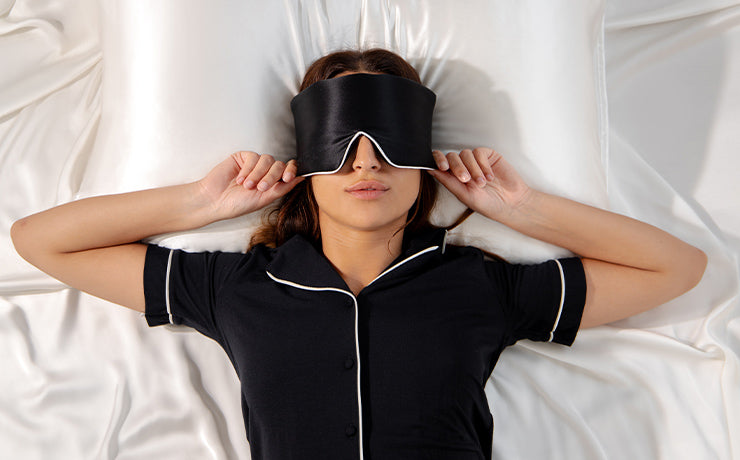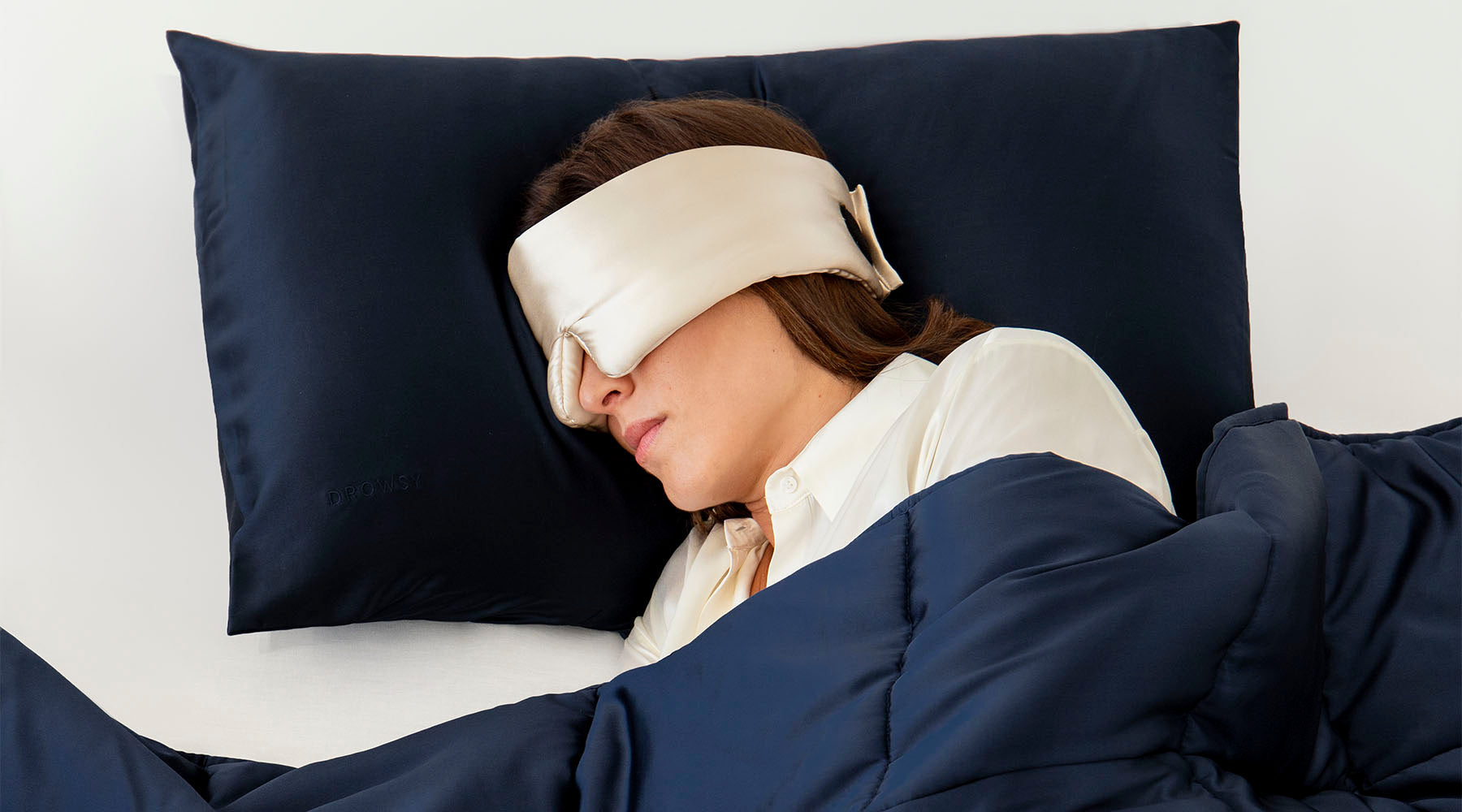Techniques to calm a busy mind before bed
We've all been there—your head hits the pillow, and instead of drifting off into peaceful sleep, your racing thoughts kick into high gear. Thoughts about your day, your to-do list, or worries about the future seem to flood in all at once. If you're tired of lying awake and staring at the ceiling, here's a list of techniques to calm your busy mind before bed.

1. Breathe deeply and slowly
Let's start with something simple: deep breathing, specifically diaphragmatic or belly breathing. When we're stressed, our breath becomes shallow and quick, which only makes us feel more anxious. By taking a few deep breaths, you're engaging in a powerful form of breathing exercises that signal your body to relax.
Give this a try: breathe in slowly through your nose for a count of four, ensuring that your diaphragm expands rather than your chest. Hold briefly, then exhale through your mouth for a count of six, feeling your belly fall. Repeat this several times, focusing solely on your breath. To enhance the relaxation effect, you can listen to calming music to help maintain your focus on the present moment. You'll be amazed at how much calmer you feel, even after just a few minutes of this mindful breathing technique.
2. Try progressive muscle relaxation (PMR)
When your body is tense, your mind often follows. Progressive muscle relaxation (PMR) involves tensely releasing different muscle groups in your body one by one. Start by tensing the muscles in your feet for a few seconds, then release.
Work your way up your body—calves, thighs, stomach, hands, arms, shoulders, neck, and finally your face. As you relax each muscle group, take a deep breath and allow yourself to let go of the tension. By the time you've gone through your whole body, you'll feel much more grounded and relaxed.
3. Create a bedtime routine
Your mind needs time to unwind, just like your body does. If you're rushing straight from a busy day into bed, it's no wonder you have difficulty falling asleep. Setting a routine with relaxation exercises in the 30 to 60 minutes before bed can help signal to your body that it's time to relax.
Try doing relaxation techniques like bedtime writing, listening to soft music, or practising gentle stretches. Incorporating a warm bath can also work wonders for your mental health. The warm water helps relax your muscles, and when you step out, your body temperature drops, which is a natural cue that it's time to sleep.
4. Write it out (journal or make a list)
Sometimes, you just need to dump all the thoughts swirling around your head. If that sounds familiar, grab a notebook or open a note on your phone. Write down whatever is on your mind—whether it's a list of things you need to do tomorrow, feelings you're processing, or things you're grateful for.
This simple practice can help clear your mind and reduce anxiety about what's to come. Once you get it out on paper, you feel less like you have to carry the weight of the world in your brain. It's a quick and easy way to de-stress and create a sense of closure for the day.
5. Set a consistent sleep schedule
If you're struggling with sleep disorders or just trouble sleeping, one of the simplest but most effective strategies is sticking to a consistent sleep schedule. Going to bed and waking up at the same time each day helps keep your body's internal clock in sync and improves your sleep quality over time.
While it may be tempting to stay up late or sleep in on weekends, this can disrupt your natural rhythm and make falling asleep more difficult. By prioritising consistency, your body learns when it's time to wind down, making it easier to drift off each night.
6. Limit screen time before bed
I get it; your phone is probably your go-to for winding down, but if you're having trouble falling asleep, it could be part of the problem. Screens' blue light disrupts your body's natural production of melatonin, the hormone that regulates sleep. That means late-night scrolling is literally keeping you awake longer than you need to be.
Try setting an alarm for 30 minutes before bed to remind you to put away the screens. If you need to stay connected, consider using a blue light filter on your devices or dimming the brightness. Trust us; your mind will thank you when it's not overstimulated by the constant barrage of information.
7. Use a sleep mask for relaxation
If external light is keeping you awake, a sleep mask can help create a darker environment for sleep. A good sleep mask can offer something called deep pressure stimulation (DPS), which has a calming effect on the nervous system.
This gentle pressure mimics the feeling of a comforting hug, helping to reduce anxiety and promote relaxation. A sleep mask is a simple yet effective way to enhance your bedtime routine and make falling asleep easier. If you're struggling with sleep deprivation, it could be the perfect addition to your routine.

Achieve restful sleep with Drowsy sleep masks
There are many ways to calm your busy mind before bed that don't involve taking sleep medicine. Finding the right techniques is essential to getting a good night's rest. If you're looking for an extra tool to improve your sleep health, consider incorporating a Drowsy sleep mask into your routine.
Meticulously designed from 22 momme mulberry silk, these eye masks offer supreme comfort and a 100% blackout design. Choose your favourite colour among the fancy Purple Martini Silk Sleep Mask, the elegant Breakfast at Drowsy Silk Sleep Mask, or the calming Blue Belle Silk Sleep Mask, and elevate your sleep quality to new heights!




